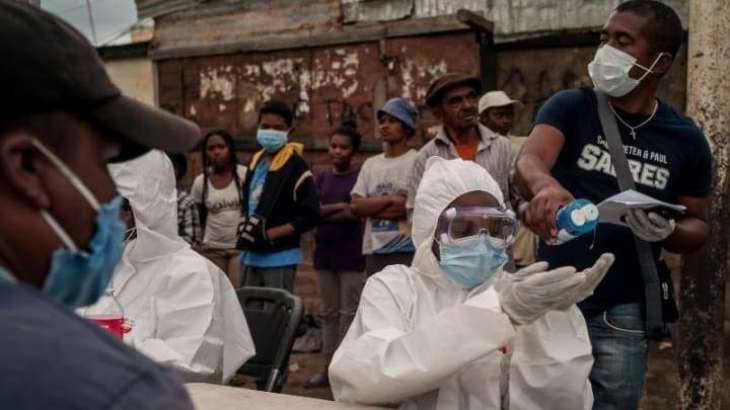Lebanese students have already missed over half of the total days of the school year since October, as most of the country's families have been facing severe financial hardships due to the deteriorating economic situation and have also been badly affected by the COVID-19 crisis, the UK-based Save the Children humanitarian aid foundation said on Friday
MOSCOW (Pakistan Point News / Sputnik - 29th May, 2020) Lebanese students have already missed over half of the total days of the school year since October, as most of the country's families have been facing severe financial hardships due to the deteriorating economic situation and have also been badly affected by the COVID-19 crisis, the UK-based Save the Children humanitarian aid foundation said on Friday.
Lebanese President Michel Aoun announced in late April that a new economic reform plan had been launched to address the country's deepening financial crisis. The national Currency plunged against the US Dollar in 2019, causing prices for bread and other necessities to soar and prompting widespread protests that toppled the previous government in October. The economic situation further worsened due to the impact of the lockdown measures aimed at curbing the spread of COVID-19.
"Learning had already seen a huge interruption during the widespread demonstrations in October and November 2019. Schools are closed again, due to the coronavirus. Students have missed half of their school year already. Now, many families have seen their income reduced to zero. We are worried this will be reflected in lower enrolment next year. For many children, there is a risk of them being out of school indefinitely unless they and their families have the support they need to continue their education," Jad Sakr, the Save the Children's country director, said in a press release.
The organization has warned that the Lebanese students are at risk of abandoning their education, as access to learning activities is rapidly decreasing due to the double impact of the crises on the national economy, and consequently, families are pushed below the poverty line.
According to the foundation's poll of 137 Lebanese, Palestinian and Syrian refugees between the ages of 12 to 24, three-quarters of the adolescents based in Lebanon find remote learning difficult, and 80 percent of them are girls.
Two-thirds of Lebanon's youth asked for financial support, as their family members have lost their jobs under the current health and economic circumstances, the organization said, adding that food and medicines are among the most essential needs for around 90 percent of the respondents.
A 17-year-old Lebanese girl told the organization that school teachers used WhatsApp as the main tool to educate students remotely, and at least 40 percent of children said that the remote learning had a negative impact on their mental health. At the same time, Syrian and Palestinian refugees, who are over half of Lebanon's four million population, said that there was no access to distance learning via their schools, and parents were unable to hire private tutors for them.
Earlier this week, the World Food Programme's (WFP) country director and representative in Lebanon, Abdallah Alwardat, told Sputnik that almost one million individuals in Lebanon might find themselves living under the food poverty line in 2020. The WFP representative noted that even before the pandemic, food access in the country had been undermined by steady inflation, the devaluation of the Lebanese lira against the US dollar, rising unemployment and salary cuts.
According to Alwardat, the WFP plans to offer emergency food assistance to 50,000 Lebanese households that have been affected by the COVID-19 and economic crises, as well as to Syrian refugees currently based in Lebanon who may be at risk of food shortages if the coronavirus-related lockdown measures are tightened.




